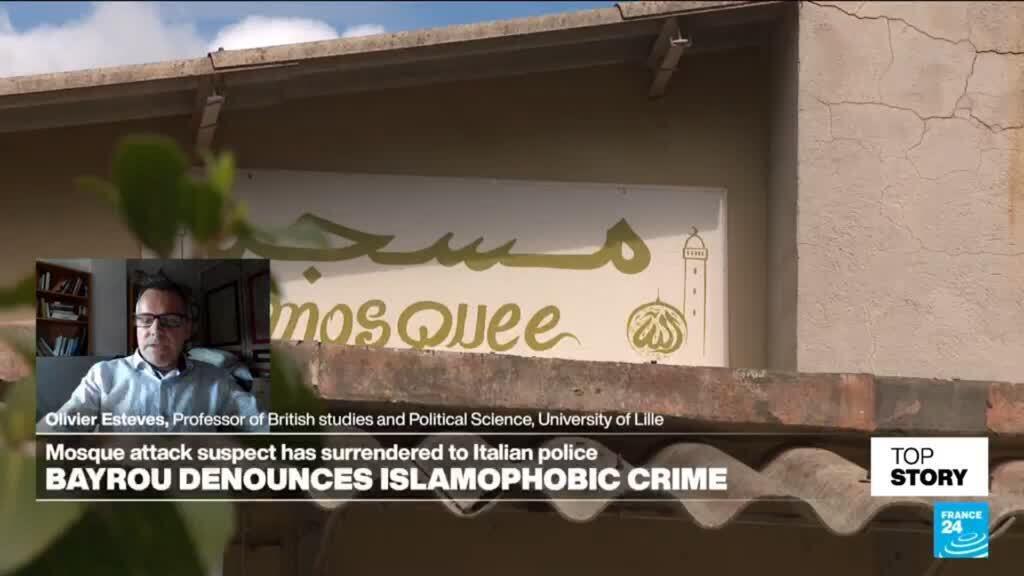A man suspected of fatally stabbing a young Malian inside a mosque in southern France has surrendered to police in Italy. The individual, identified by Italian authorities as 21-year-old Oliver Hadzovic, is also referred to as Olivier A. by French prosecutors. This alarming incident has raised questions and stirred debates, not only about public safety but also about the motivations behind such violent actions.
According to reports, the stabbing took place in a mosque, which inherently adds a layer of complexity given the religious context. It is crucial to note that the defense attorney for Hadzovic has stated that the act was not motivated by anti-Islamic sentiments. Instead, Hadzovic reportedly claimed that he "killed the first person he saw," which raises concerns about his mental state and intentions at the time of the incident. This assertion aims to diminish any perceptions of a hate crime, a significant point in the ongoing investigation.
The victim, a young Malian man, succumbed to injuries sustained during the attack, leading to widespread condemnation and shock among local communities and beyond. The fact that Hadzovic filmed the aftermath of the attack has further amplified the horror of the situation, as it suggests a troubling detachment from the gravity of his actions. The implications of recording such an event contribute to discussions on the desensitization to violence in contemporary society.
François Picard, a prominent figure in media commentary, has been following this case closely and has discussed its implications with expert Olivier Esteves, a Professor of British Studies and Political Science at the University of Lille. Esteves has provided insights into how cases like this can mirror larger social issues, including marginalization and the complexities of identity in modern European realities. His academic background underlines the need for a nuanced understanding of the dynamics at play in what is essentially a tragic event involving violence, religion, and humanity.
The incident has ignited conversations around security within places of worship, especially in Europe, where tensions surrounding religious differences can often lead to violence. The mosque, a place meant for peace and community gathering, has now turned into a site of tragedy, raising alarms regarding the necessity for better protection for such spaces. Communities are left grappling with fear, questioning their safety in what should be sanctuaries from violence and discord.
In light of these developments, the case of Oliver Hadzovic poses significant questions not just about punitive measures but also about social and psychological factors that lead to such heinous acts. It is essential that authorities investigate thoroughly to uncover any underlying issues that could point to broader societal malfunctions. This includes exploring mental health interventions and strategies that might prevent similar occurrences in the future.
The response from various segments of society, including religious leaders, community activists, and policymakers, will play a critical role in addressing the aftermath of this event. It is vital to foster dialogue and understanding among different communities, especially in multicultural regions where tensions can easily escalate into violence.
This tragic incident serves as a stark reminder of the complexities of human behavior, the importance of empathy, and the need for comprehensive strategies to prevent such violence from occurring again in the future.












